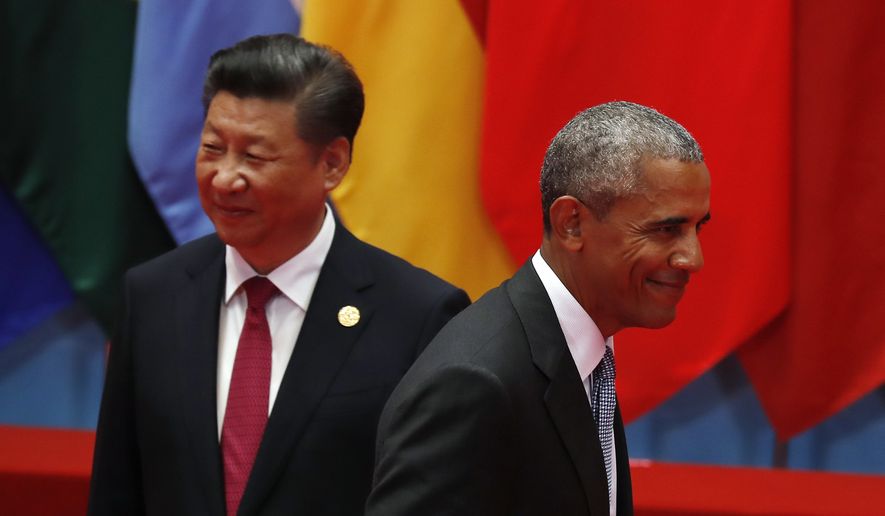China has violated a bilateral agreement with the United States, reached during the Obama administration, that bans either country from conducting state-sponsored, cyber-enabled economic espionage against each other, a top U.S. National Security Agency official claimed Thursday.
Rob Joyce, an NSA official who previously served as President Trump’s cybersecurity coordinator, the top White House cybersecurity policy position, accused Beijing of violating the 2015 deal during a panel discussion hosted by The Aspen Institute at the California Academy of Sciences in San Francisco.
“It’s clear that they are well beyond the bounds today of the agreement that was forged between our countries,” said Mr. Joyce.
Reached by former President Barack Obama and his Chinese counterpart, Xi Jinping, the 2015 pact said that neither nation would “knowingly support cyber-enabled theft of intellectual property,” according to the White House, effectively barring either from using state-sponsored hackers to target the other’s private sectors.
The deal “had a marked impact” on China’s behavior, Mr. Joyce added, evidenced by a dramatic but short-lived decrease in attacks.
“I don’t know that a switch was flipped, but we’ve certainly seen their behavior erode in the last year, and we’re very concerned with those troubling trends,” Mr. Joyce added.
Dmitri Alperovitch, co-founder and chief technical officer of CrowdStrike, a private sector cybersecurity firm, similarly accused China of recently ramping up its attacks against U.S. targets after being relatively inactive in the agreement’s aftermath.
CrowdStrike saw the number of related Chinese-origin cyberattacks drop by over 90 percent in the months after the deal was reached, Mr. Alperovitch said during the panel discussion. He said the trend reversed during the last year, however, adding: “I can confidently say that they’re back.”
Chinese hackers have recently set their sights on U.S. targets including law firms, insurance companies and components of the manufacturing and biotech sectors, he added.
A spokesperson for the Chinese Ministry of Foreign Affairs did not immediately return a message seeking comment.
The latest accusations against China from a top NSA official came on the heels of agencies including the Departments of Defense and Homeland Security raising similar concerns in recent weeks about the nation’s alleged cyber activities.
Jeff Sessions, Mr. Trump’s former attorney general, made similar remarks last week while announcing charges economic espionage charges against defendants including Fujian Jinhua Integrated Circuit, a Chinese state-owned enterprise.
“Chinese economic espionage against the United States has been increasing—and it has been increasing rapidly,” Mr. Sessions said last week prior to his resignation Wednesday. “I am here to say that enough is enough.”
“China in many ways represents the broadest, most complicated, most long-term counter-intelligence threat we face,” FBI Director Christopher Wray said during a Senate Homeland Security Committee hearing weeks earlier. “China is fighting tomorrow’s fight.”
DHS said in a separate warning last month that critical infrastructure sectors in the U.S. and abroad were recently been hit by a cyber-espionage campaign that private researchers previously traced to China.
McAfee, another private cybersecurity firm, subsequently said it found evidence recently of hackers setting their sights on U.S. victims using malware previously traced to the Chinese military, including targets in the agricultural, financial, government, healthcare and industrial sectors.
The New York Times, meanwhile, recently reported that U.S. intelligence officials have assessed that Chinese and Russian spies have successfully eavesdropped on cellphone conversations conducted by Mr. Trump.
Mr. Joyce led the NSA’s hacking division, its Tailored Access Operations (TAO) office, prior to becoming White House cybersecurity coordinator in 2017. He left the job in May to return to the NSA, and the Trump administration subsequently eliminated his former position.
• Andrew Blake can be reached at ablake@washingtontimes.com.




Please read our comment policy before commenting.